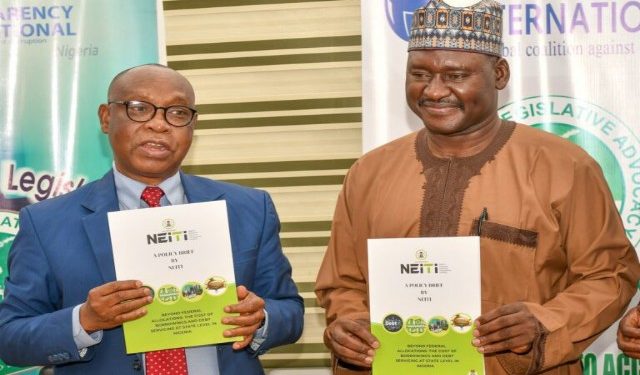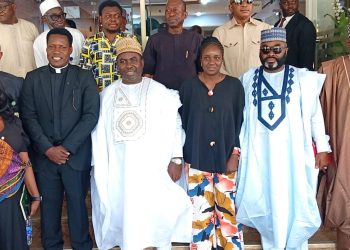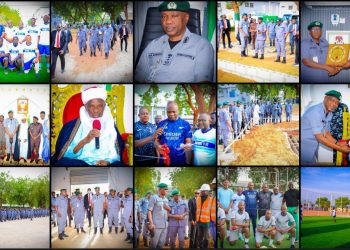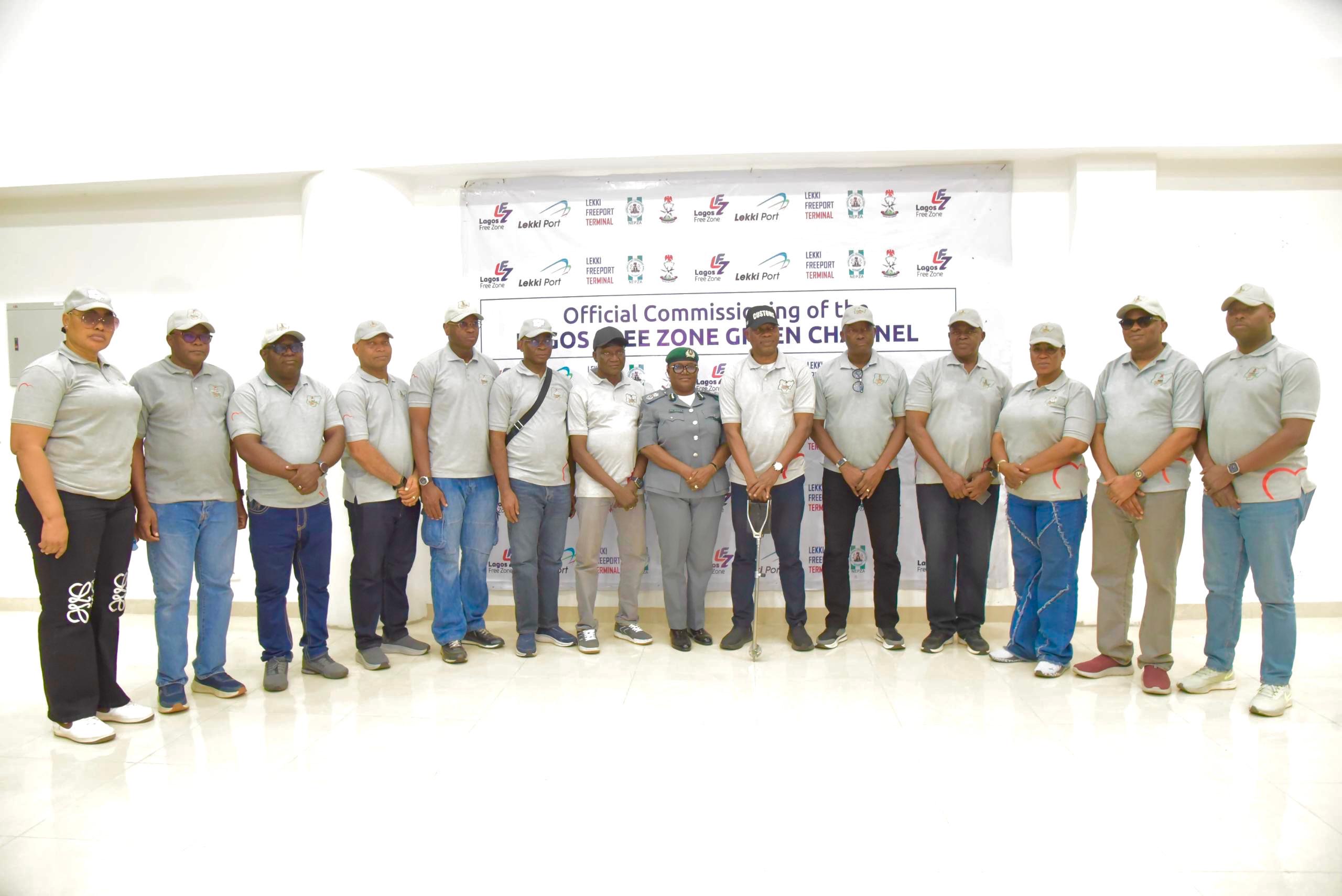By Nkechi Eze
The Civil Society Legislative Advocacy Centre (CISLAC) and the Nigeria Extractive Industries Transparency Initiative (NEITI) have renewed their long-standing partnership to strengthen transparency, accountability, and reform in Nigeria’s extractive industries. The renewed collaboration was sealed during an engagement meeting held in Abuja, which brought together the leadership of NEITI, CISLAC, civil society partners, and the media.
In his welcome address, the Executive Director of CISLAC, Auwal Ibrahim Musa (Rafsanjani), described the visit of the NEITI Executive Secretary and his management team as more than a formal courtesy, stressing that it was a reaffirmation of shared values and joint commitment to deepening reforms in Nigeria’s extractive sector. Rafsanjani recalled the historical role of civil society in the establishment of EITI in Nigeria, noting that CISLAC was one of the organisations that advocated for its creation and for the passage of the NEITI Act in 2007. According to him, that advocacy effort made Nigeria the first country in the world to take concrete steps to implement the Extractive Industries Transparency Initiative after voluntarily signing up in 2003.
He highlighted that the institutionalisation of NEITI was not an isolated step but part of the broader National Economic Empowerment and Development Strategy (NEEDS), which led to a unique triple mechanism that included the enactment of the NEITI Act, the creation of a fully staffed national secretariat, and annual public budgeting with legislative oversight for EITI implementation. Rafsanjani stressed that NEITI was not just another agency but Nigeria’s official representation in the global EITI family, mandated to promote prudent resource governance, reduce poverty, and support sustainable development.
Describing CISLAC and NEITI as natural allies, he said both institutions were anchored on transparency and people-centred governance. He pointed to a long list of joint efforts that included policy dialogues, public awareness campaigns, host community engagements, beneficial ownership transparency, and coordinated advocacy to amplify audit findings and demand accountability. He commended NEITI for providing critical data and exposing systemic gaps that have saved Nigeria billions of naira and informed key policy reforms, noting that civil society’s role has been to push government and companies to act on those findings.
Looking ahead, Rafsanjani challenged both CISLAC and NEITI to confront present realities, especially the twin issues of declining oil revenues and the urgency of energy transition, alongside emerging governance risks in the expanding solid minerals sector. He raised fundamental questions about whether NEITI reports are being effectively used to drive accountability and whether communities in extractive regions are feeling the benefits of transparency. He emphasised that deepened collaboration between civil society and NEITI was essential to provide answers to these questions.
Outlining opportunities for future partnership, the CISLAC chief proposed greater civil society involvement in tracking the implementation of audit recommendations, stronger legislative advocacy to improve extractive governance laws, joint capacity-building initiatives to empower journalists and CSOs in interpreting complex data, and united action to protect civic space in governance. “The true wealth of a nation lies not in its natural resources, but in how those resources are managed and shared,” he concluded, pledging CISLAC’s readiness to continue walking the reform journey alongside NEITI.
Responding, the Executive Secretary of NEITI, Dr. Orji Ogbonnaya Orji, commended CISLAC for its consistency in championing reforms in the extractive sector and for its role as Nigeria’s arm of Transparency International. He observed that civil society has always been the conscience of the EITI process globally, amplifying citizen voices, demanding disclosures, and ensuring that reforms translate into real benefits for ordinary people. He noted that across the world, civil society organisations have shaped governance outcomes, influenced aid policy, championed debates on tax justice, climate accountability, and illicit financial flows, and defended transparency norms in the face of shrinking civic space.
Dr. Orji argued, however, that civil society must now elevate its role in EITI beyond routine advocacy and evolve into knowledge leaders and solution providers. “It is time to move from simply demanding accountability to providing knowledge-based, evidence-driven, and solution-oriented leadership that adds real value to governance,” he said. He called on civil society to take the lead in monitoring Nigeria’s energy transition by developing scorecards, shaping community transition plans, and ensuring no group is left behind. He urged CSOs to go beyond demanding beneficial ownership disclosures and instead analyse them to identify risks and lessons for policy makers.
He further stressed the importance of civil society providing alternative policy options on subsidy reforms, debt sustainability, fiscal justice, and equitable development while maintaining vigilance against illicit financial flows. He pointed to the growing need for collaboration with investigative journalists, financial intelligence units, and global watchdogs to make governance reforms more impactful.
The NEITI boss disclosed that his agency had deliberately created institutional linkages to support civil society, citing the reinvigorated Inter-Ministerial Task Team, the strengthened Companies Forum, and the development of a new NEITI Data Center to provide real-time disclosures on revenues, contracts, ownership, host community funds, and energy transition. He added that the 2024 industry reports in oil, gas, and solid minerals were already underway. He also announced new memoranda of understanding signed with the EFCC, ICPC, and NFIU, with more agreements being finalised with the National Bureau of Statistics and NNPC Ltd. These, he explained, would create platforms for deeper collaboration between government, industry, and citizens.
In a direct appeal to CISLAC, Dr. Orji challenged the organisation to lead the civil society constituency in redefining its role under the EITI. While commending CISLAC’s regular publications and bulletins, he urged it to take a bolder step by publishing peer-reviewed scholarly journals that could aid research, teaching, and learning, thereby institutionalising knowledge production and positioning Nigerian civil society as a global thought leader on extractive governance.
“Civil society has been the backbone of Nigeria’s EITI journey. But the future demands more. It demands that Civil Society Organisations evolve from watchdogs to solution-providers, from activists to knowledge leaders, from observers to reform architects,” he said, pledging NEITI’s continued commitment to an open civic space and closer partnership with civil society.
The engagement ended with both CISLAC and NEITI reaffirming their resolve to work hand in hand to ensure that Nigeria’s natural resources are managed with transparency, accountability, and for the benefit of all citizens.















